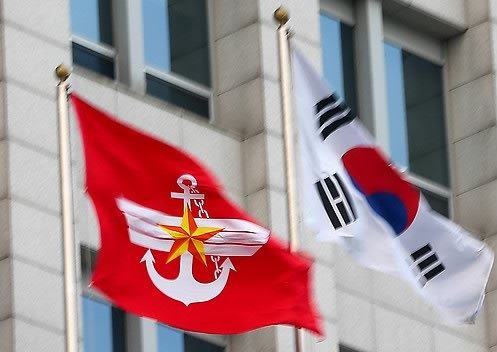
<1월 17일자 코리아타임스 사설>
White paper stops describing North Korea as ‘enemy’
국방백서, 북한을 ‘적’으로 기술하는 것을 중단
The Ministry of National Defense deleted a phrase describing North Korea as an “enemy” of South Korea in its 2018 white paper published Tuesday. The deletion certainly reflects the rapidly changing geopolitical situation on the peninsula following inter-Korean detente and denuclearization talks between Pyongyang and Washington.
국방부는 화요일 발간된 2018 국방백서에서 북한을 한국의 ‘적’으로 기술하는 구절을 삭제했다. 이는 남북간 긴장 완화와 북미 비핵화 협상에 따라 급변하는 한반도의 지정학적 상황을 분명 반영하고 있다.
The removal of the phrase should not come as a surprise. Conservative opposition parties and their supporters might argue it is premature to stop defining the North Korean government and military as our enemy. It is understandable that conservatives harbor worries about military threats from the North, still technically at war with the South after the Korean War ended with armistice.
이 문구의 삭제는 놀라운 일은 아니다. 보수 야당들과 이들의 지지자들은 북한 정부와 군대를 우리의 적으로 규정하는 것을 중단하는 것은 시기상조라고 주장할 수도 있다. 한국전쟁이 정전으로 끝나서 남북이 아직도 엄밀히 말해 전시 상태에 있으므로 보수주의자들이 북한의 군사적 위협에 관해 우려를 갖는 것은 이해할 만하다.
Nevertheless, it is irrational to have a knee-jerk reaction to the change in the defense white paper. In this sense, the conservative camp should not yield to the temptation to revive the debate over whether North Korea is our enemy or not. Such a debate, if revived, will do more harm than good. It could be seen as an anachronistic attempt to go back to the old days of the Cold War, only reviving red-baiting and a self-destructive ideological conflict between conservatives and progressives.
그럼에도, 국방백서의 변화에 대해 무릎 반사와 같은 반응을 보이는 것은 불합리하다. 이런 의미에서, 보수진영은 북한이 우리의 적인가 아닌가에 대해 논의를 재개하려는 유혹에 굴복해서는 안 된다. 이러한 논의는 만약 재개된다면 득보다 실이 많다. 이런 논의는 옛날의 냉전시대로 돌아가려는 시대착오적 시도로 보여질 수 있는데, 이는 공산주의 탄압이나 보수-진보간 자멸적인 이념 대결을 재연할 뿐이다.
One may raise concerns that our defense posture could be weakened by not referring directly to the North as the enemy of the South. However, the white paper used the term “enemy” to describe broader national security threats. The defense ministry said, “The expression, enemy, is described as a concept that encompasses not only North Korean threats but also transnational and nonmilitary threats, as well as increasing potential threats.”
북한을 남한의 적으로 직접적으로 언급하지 않음으로써 우리의 방위 태세가 약화될 수 있다고 우려를 제기할 수 있다. 그러나, 국방백서는 더 광범위한 국가안보 위협을 기술하기 위해 ‘적’이란 용어를 사용했다. 국방부는 “적 표현은 북한 위협뿐만 아니라 점증하고 있는 잠재적 위협과 초국가적ㆍ비군사적 위협을 포괄하는 개념으로 기술했다”고 밝혔다.
In a word, the concept of “enemy” is not fixed. It can change in tune with the changing security and geopolitical environment. For example, the Kim Young-sam administration defined North Korea as South Korea’s main enemy in 1995 after Pyongyang threatened to turn Seoul into a sea of fire the previous year. But in 2004 the liberal government under President Roh Moo-hyun omitted the definition, only mentioning that the North posed a direct military threat to the South.
한마디로, ‘적’의 개념은 고정된 것이 아니다. 이 개념은 변화하는 안보 및 지정학적 환경에 맞춰 변화할 수 있다. 예를 들어, 김영삼 정부는 북한이 서울을 불바다로 만들어 버리겠다고 위협한 다음해인 1995년 북한을 한국의 주적으로 규정했다. 그러나 2004년 노무현 대통령의 진보 정부는 이 규정을 삭제하고, 대신 북한이 남한에 직접적 군사 위협이라고 언급했다.
Then, the conservative Lee Myung-bak administration brought back the “enemy” expression regarding the North in 2010. This reflected ever-mounting military tension with Pyongyang which was accused of a torpedo attack on the South’s warship Cheonan, which killed 46 sailors, and the shelling of Yeonpyeong Island.
그리고 2010년 이명박 정부는 북한과 관련하여 ‘적’이란 표현을 다시 사용했다. 이는 46명의 해군병사를 죽게 한 천안함 어뢰 공격과 연평도 포격을 한 것으로 지목된 북한과의 고조된 군사 위협을 반영하고 있다.
Now the situation has changed greatly since the inter-Korean summits and the first U.S.-North Korea summit last year. Seoul, Pyongyang and Washington are making efforts to ease tensions, make peace and move toward co-prosperity, although denuclearization talks between the U.S. and the North have hit a snag.
지금 상황은 지난해 남북정상회담과 첫 북미정상회담이 개최된 이후 아주 많이 변했다. 남북한 및 미국은 비록 북미간 비핵화 회담이 지지부진할지라도, 긴장을 완화하고, 평화를 정착하고 공동번영으로 나아가기 위해 노력하고 있다.
North Korea could be an enemy of South Korea, especially given that they fought each other in the Korean War. The two Koreas have often been pitted against each other since then. But it is also necessary to see the North as our counterpart, with which the South needs to promote reconciliation, cooperation and exchange for coexistence, co-prosperity and eventually unification.
특히 남북한은 한국전쟁 동안 서로 싸웠다는 사실을 고려할 때, 북한은 한국의 적일 수도 있다. 남북한은 그때 이후 서로 종종 대결을 벌여왔다. 그러나 북한을 공존, 공영 그리고 궁극적으로 통일을 위한 화해, 협력과 교류를 증진할 필요가 있는 우리의 상대로 보는 것 또한 필요하다.
안성진 코리아타임스 어학연구소 책임연구원
기사 URL이 복사되었습니다.

댓글0